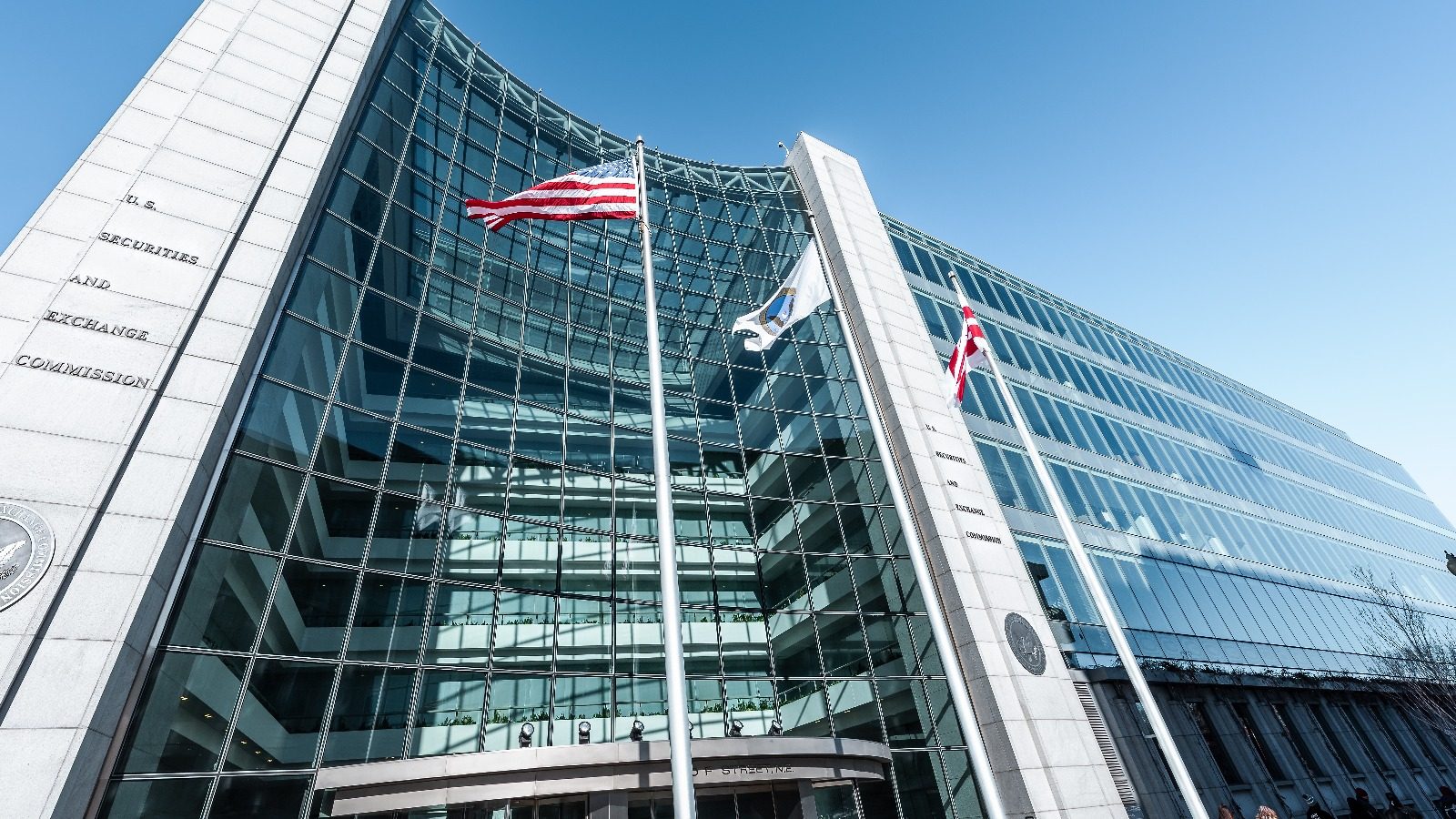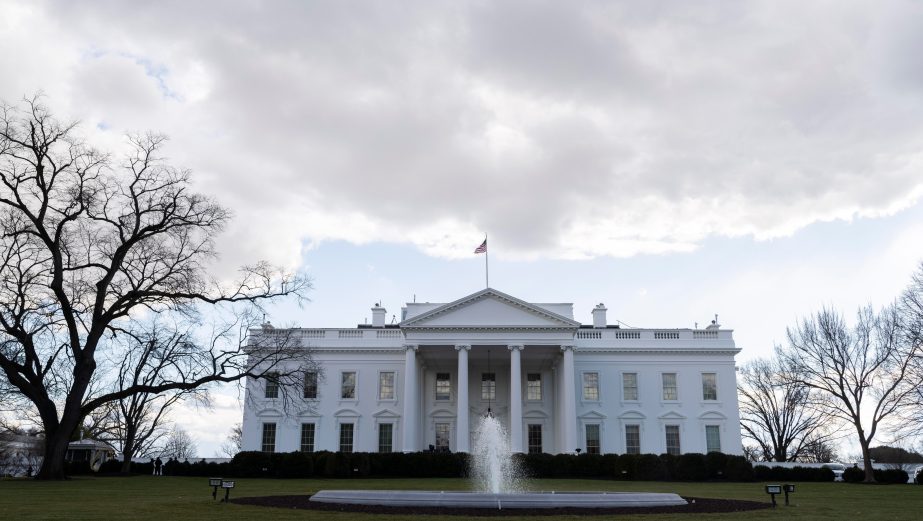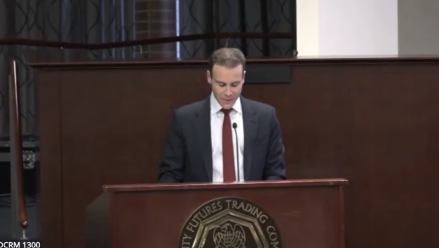The White House is reportedly considering Paul Atkins, chair of the Securities and Exchange Commission (SEC), to also chair the Commodity Futures Trading Commission (CFTC) — an unprecedented move that would put Atkins in charge of oversight of a wide range of financial products, including prediction markets.
According to crypto law newsletter Brogan Law, Atkins is the latest candidate to be considered as chair of the CFTC. The report, published Monday, cited “two sources who speak with Atkins regularly,” and said the sources added that Atkins would be “game for the job.”
If appointed to the CFTC role, Atkins would also remain in place atop the SEC, putting him in charge of both of the U.S.’ main financial regulators.
The suggestion of Atkins taking over the CFTC appears to put Brian Quintenz’s nomination in further jeopardy.
Is dual chair role legal?
That dual role would be unprecedented and its legality appears to be up for debate.
The Securities Exchange Act of 1934 — the law that created the SEC — says “no commissioner shall engage in any other business, vocation, or employment than that of serving as commissioner.”
That would appear to make Atkins’ CFTC candidacy a non-starter, but White House lawyers may argue that the law refers to private vocations and does not count leading other regulatory agencies.
Brogan Law also notes another possibility if Atkins isn’t able to be the official CFTC chair — making him a “shadow chair” of the CFTC. Anne Joseph O’Connell, a law professor and administrative law researcher at the Stanford Law School, told the newsletter that the administration may consider a plan where Atkins would “through various channels, let it be known what he thinks the CFTC should do and the CFTC does what he thinks should be done, but it is still the CFTC confirmed people who are signing off on the decisions.” In this way, Atkins could be the de facto boss of the CFTC even if another person held the title of chair.
This “shadow chair” model is similar to a model that Treasury Secretary Scott Bessent floated for the Federal Reserve in 2024.
SEC prediction market involvement grows
It appears that, regardless of who ends up chairing the CFTC, the SEC could have a greater degree of involvement in prediction markets than it has to date.
Sept. 29, the SEC and CFTC will hold a joint roundtable “on regulatory harmonization efforts” across a number of financial products, including prediction markets.
In a joint statement accompanying the announcement of that meeting, Atkins and CFTC Acting Chair Caroline Pham suggested certain elements of prediction markets may be considered part of the SEC’s jurisdiction.
“Prediction markets, while they have existed around the world for decades, are undergoing rapid growth with growing demand from both market operators and the public,” they said. “We should work together to provide clarity for innovators that want to list event contracts on prediction markets responsibly, including those based on securities.
“The SEC and CFTC should examine opportunities to collaborate to consider where event contracts may be made available to U.S. market participants regardless of where the jurisdictional lines fall.”
Prediction market Polymarket — which is not yet available in the U.S., but could launch in the country soon — recently started offering trades on listed companies’ earnings, a move that gets closer to territory traditionally regulated by the SEC.
The Trump administration has aimed to move both the SEC and the CFTC in a more crypto-friendly direction, and make a break from the stricter enforcement of securities and futures law against crypto companies during the Biden administration.
Quintenz hopes appear slim
The floating of another new candidate is the latest sign that Quintenz’s candidacy for CFTC chair has little chance of success.
Quintenz was nominated for the role by President Trump in February. However, despite a hearing in front of the Senate Committee On Agriculture, Nutrition & Forestry, the committee never voted on his candidacy. Twice, he was scheduled for a vote but was removed from the schedule at the last minute both times. On the second occasion, his removal came at the request of the White House, reportedly following lobbying by Trump donors the Winklevoss twins, who founded crypto exchange Gemini.
Earlier this month, Quintenz posted screenshots of conversations with Tyler Winklevoss on social media site X, concerning a complaint against the CFTC made by Gemini.
Quintenz’s candidacy was controversial partly because of his ties to CFTC-registered Kalshi, of which he is currently a director and shareholder.
Quintenz has promised to leave that role and divest his Kalshi shares if he becomes CFTC chair. However, emails in which his Chief of Staff Kevin Webb asked for information about outstanding applications to become a designated contract market — which may concern Kalshi rivals — have led to questions about potential conflicts of interest.
Two other reported chair candidates
Last week, Bloomberg reported two other candidates were being considered to lead the CFTC: Michael Selig, chief counsel to the Securities and Exchange Commission’s crypto task force, and Tyler Williams, counselor to Treasury Secretary Bessent on digital asset policy.
Selig has worked at the SEC since March, suggesting that his candidacy may also mean greater links between the SEC and CFTC.
Working at Willkie Farr & Gallagher, Selig worked with clients including crypto-focused investment firm Paradigm, which sent a letter to the CFTC arguing that event contracts on both elections and sports should be permitted. Selig’s name is on that letter.
73943AlexanderGrieveWilliams is best known as the main author of the White House’s “Strengthening American Leadership in Digital Financial Technology” report.
New CFTC chair will be its only commissioner
The new CFTC chair looks set to be its only commissioner, at least at first.
Kristin Johnson left the CFTC in August. On her way out, she said “we have too few guardrails and too little visibility into the prediction market landscape,” and said the CFTC should “express in a clear voice our expectations related to these contracts.”
Summer Mersinger and Christy Goldsmith Romero both left their roles as commissioners at the end of May, while previous Chair Rostin Behnam left in February.
Acting Chair Caroline Pham is the only commissioner in place at the moment, but she will leave when the new chair arrives.






